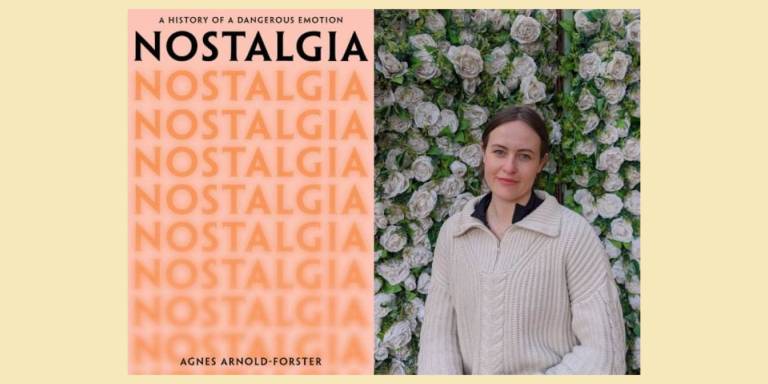Discussion: Nostalgia - A History of a Dangerous Emotion
15 May 2024, 6:00 pm–7:30 pm

Join the UCL European Institute, the IAS and Grand Challenges, for an interdisciplinary discussion of nostalgia, drawing on a new book by Agnes Arnold-Forster.
This event is free.
Event Information
Open to
- All | UCL staff | UCL students
Availability
- Yes
Cost
- Free
Organiser
-
Institute of Advanced Studies
Location
-
IAS Common Ground, G11ground floor, South WingUCL, Gower St, LondonWC1E 6BT
Nostalgia is a social and political emotion, vulnerable to misuse, and one that reflects the anxieties of the age. It is one of the many ways we communicate a desire for the past, dissatisfaction with the present and our visions for the future.
In Nostalgia: A Biography, Agnes Arnold-Forster traces the history of this complex, slippery emotion and uses it as a lens through which to consider the changing pace of society, our collective feelings of regret, dislocation and belonging, the conditions of modern and contemporary work, and the politics of fear and anxiety.
Join the UCL European Institute, the IAS and UCL Grand Challenges, for an evening with the author, in conversation with UCL academics, to consider the origins of nostalgia as a psychopathological disorder through to how it is used and misused in contemporary life – in areas from politics to advertising – and how we best respond.
Speaker
Agnes Arnold-Forster, Chancellor’s Fellow, University of Edinburgh
Respondents
Sonu Shamdasani, Professor in Jung History, UCL SELCs and Co-Director of the UCL Health Humanities Centre
Emily McTernan, Associate Professor in Political Theory, UCL Department of Political Science
Joanna Elmy, writer, journalist and UCL European Institute, Writer in Residency 2024
Chair
Nicola Miller, Professor of Latin American History and Director of the Institute of Advanced Studies
About the Speaker
Agnes Arnold-Foster
Agnes Arnold-Foster is a writer; researcher; and historian. She has written, researched, and presented on everything from women's health in today's Britain to the history of cancer; from the 1918 flu pandemic to the well-being of surgeons in twenty-first-century America. She is an expert in the history of Europe, the USA, and Canada, and her research spans the eighteenth century to the present day. She explores societies, cultures, medicine, science, technology, emotions, and the world of work.
More about Agnes Arnold-Foster Close
Close

